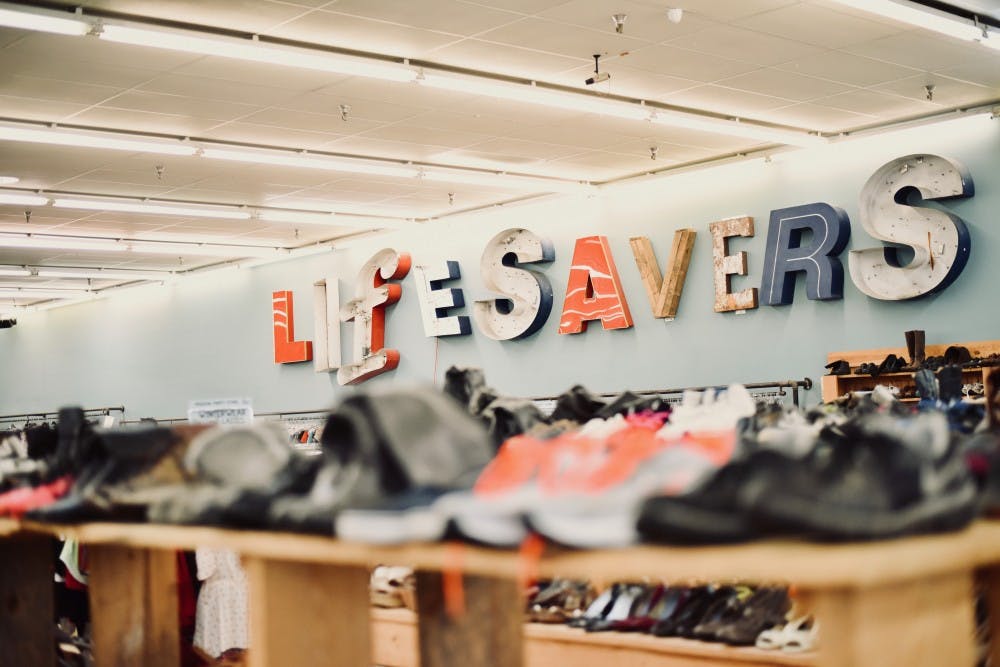A new challenge for some employers has emerged in 2021 as more people opt to leave their jobs, a stark change from the workplace issues observed in 2020, when many people found themselves involuntarily out of work.
In May, Auburn boasted a roughly 2.4% unemployment rate, a point below the state unemployment rate and over three points below the national average, according to the Alabama Department of Labor. It would appear, then, that nationwide reports of myriad unfilled job openings are not indicative of a local problem, but the experience of several Auburn business owners, still in a pinch to find workers to fill their positions, runs counter to that notion.
Chad Harrison, the manager at Niffer’s Place in Auburn, said that his business has struggled bringing in new employees and fresh applications. He recalls this trend beginning at the start of the pandemic.
“A lot of employees who left here during that time were getting the benefits from unemployment and chose not to come back because they were getting so much money from that,” Harrison said.
He said hiring challenges have since “snowballed from there.” Now, not only is Niffer’s facing hiring shortages, but Harrison said everybody he talks to seems to be experiencing similar issues.
To attract more employees, Niffer’s has implemented multiple incentives for new workers.
“We are actually starting people at a higher rate, which is affecting our labor cost a lot,” Harrison said. “We are offering more food packages for our employees; whereas you used to get a discount, now it’s free food every time you work, basically. We are offering basically almost double pay on Sunday night shifts, which is kind of weird, but we are having to do that.”
Lifesaver’s Mission Thrift is also looking for workers.
“We are accepting applications ASAP,” said Eve MacDougall, the manager of the store. “We are looking for part-time, full-time, whatever they want. ... But we really need a very expendable person.”
MacDougall attributed her store’s shortage of workers to both the effects of the pandemic and summer absences with students. Today, Mission Thrift starts its employees at $8 an hour with flexible hours for students enrolled at the University.
After completing 90 days of work, the director raises the pay wage. MacDougall said this is to ensure that their employees like the job and are willing to stay.
Alan Seals, a professor and labor economist at Auburn University who studies employment, weighed in on the current hiring shortages the U.S. is experiencing.
The answer to why some jobs are being left unfilled is complex, Seals said. There are jobs the pandemic has eliminated from the workforce, accelerating “pre-COVID trends toward more automation,” which Seals said makes middle management the most vulnerable.
“This reallocation of labor is likely one of the culprits responsible for employment puzzles we are seeing reported in the news — record numbers of job openings and no one to fill the jobs, although increased unemployment benefits are no doubt a factor also,” he said.
When looking at the general U.S. labor market, the country is down nearly 8 million jobs since the pandemic began. Seals said it is hard to say when the country will return to normal pre-pandemic levels of employment.
“The politics around all these issues are also complex and hard to predict," Seals said. "In sum, there is an enormous amount of economic uncertainty and anyone who says they understand it is lying.”
The Auburn Campus Recreation Center has also struggled with hiring, which at least in part is due to marketing issues as more students have been out of town and fewer in-person events were held during the pandemic.
Typically boasting over 300 new employees each semester, the Rec often hires a semester in advance. Summer and fall applications are accepted at the RECxpo job fair in March, with applications for the spring accepted in October.
During the 2020-21 academic year, with minimal to no in-person events, the Rec was forced to rely on social media, word of mouth, signage at their facilities and informational posts on their website to recruit new workers.
“It has been difficult,” said Leanne Greene, assistant director of marketing. “Everything we do at Campus Recreation is based around the skills and talents of our student employees.”
Greene also noted that COVID created an opportunity for both off-campus and even out-of-state learning to occur with Auburn’s students, significantly depleting the Rec’s applicant pool.
“Many of our student employees had already found other jobs working for businesses that had remained open during the pandemic (Uber, Lyft, Grubhub, Instacart, etc.),” Greene said. “Even those who might have wanted to come back, could not be certain back in March that we would be operating again at full capacity by fall.”
While some businesses have opted to tack on monetary incentives to attract more applicants, Nicholas Head of Auburn Outdoors said that he believes the transferable skills students take away from working at the Rec are the incentives. Head said what he hears most often from student employees is how they wish they had known about the opportunities sooner. Head calls their jobs “gateway” jobs, leading to future employment in areas they already love.
How some local businesses will or won’t bring in workers is not yet clear, and the same can be said of the pandemic’s effects on the labor market and economy more generally.
“We likely won’t have a decent understanding of the impact of the pandemic for years to come,” Seals said. “Economists are still studying the Great Depression. … The re-adjustment process will take a bit of time.”
Do you like this story? The Plainsman doesn't accept money from tuition or student fees, and we don't charge a subscription fee. But you can donate to support The Plainsman.





